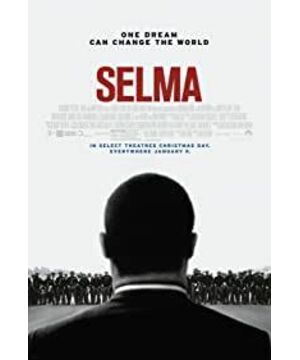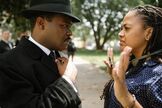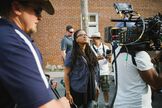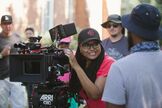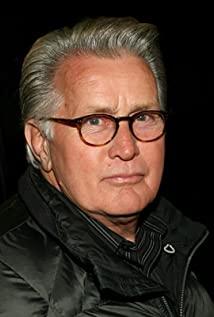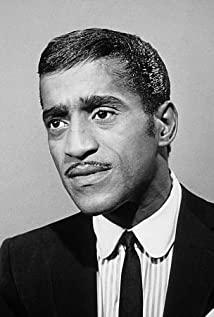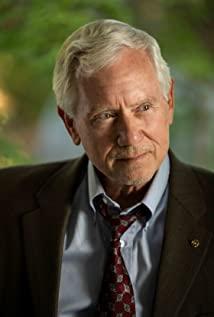published in the Badass FM official account/Wang Meijie (the egg laid by Britain),
whether it is the ambition of the topic and the neatness of the film form, or the undoubted influence of the film, it has made last year’s popular movie Erma has all the iconic features of winning the awards season, and facts have proved that it is true. Just as Martin Luther King marched toward Selma City, Alabama, on the screen, this civil rights campaign propaganda film focused on the 1965 "Massage from Selma to Montgomery" campaign also began its ease. The march to the awards season. After being nominated for 6 awards including the American Critics’ Choice Award for Best Picture and Best Actor, "Selma" won the 87th Academy Awards for Best Original Song, which is quite fruitful.
In fact, not only is the important and complicated historical features of the content of "Selma" enough to attract such Oscar judges, the selection of the soundtrack in the film is also very particular, which is more valuable than the soundtrack in "Boyhood". Not only the award-winning song "glory", but the story behind each soundtrack is quite interesting, which involves many old traditional black folk songs, which is worth studying.
Before detailing the soundtrack of "Selma", it is better to briefly talk about the music background before the black civil rights in the United States. In fact, since the first batch of black slaves were transported to the United States in 1526, the resistance of the blacks has been throughout the entire history of the United States. From the Lincoln Emancipation of Black Slaves, the Brown Case, the Civil Rights Act, to Obama's election as the first black president in American history in 2008, the issue of race has always been an important issue in the United States. When black people were still being bought and sold as slaves, they began to sing and express their sense of distress while working. This is actually the African-American Work Song (or Slave Song) in the future. On the other hand, the fate of black tragedies also prompted them to seek spiritual comfort from religion, so Christian hymns became another major black music, that is, the development of Negro Spiritual, a religious music that is overcast with black tragedy. The predecessor of gospel music. Both Work Song and Negro Spiritual are about the suffering of black people, and they have bred blues music in the South that can influence the history of Western music. Because this kind of music is based on the tragic nature of the black community, it has gradually implanted a large amount of black consciousness. The black consciousness in this music and the future civil rights movement inseparably influence each other, and reached the peak during the civil rights movement.
The rise of the civil rights movement brought about by the Rosa Parks bus incident in 1955 caused blacks to re-examine their identities. More and more jazz musicians wrote songs related to the civil rights movement and even participated directly in the civil rights movement. And some more radical musicians show their political inclinations directly in the music. For example, Max Roach has a clearly radical political attitude, and he himself is an active social activist. His most important work related to the civil rights movement is "We Insist!" in 1960, which is also a civil rights movement jazz. An important masterpiece in China. After understanding the simple background, it is not difficult to know that black music that expresses black consciousness is inseparable from the development of the civil rights movement. This is actually very helpful for everyone to understand the soundtrack in "Selma". Let's analyze it in detail below.
1. "One Morning Soon" Performers: Joyce Collins & Johnita Collins
This song appeared in the movie at 13 minutes and 40 seconds, when Martin Luther King happened to drive to Alabama to arrive at Selma. On the one hand, it foreshadows that before this lens, the black suffrage he fought for by the president will be realized; on the other hand, it is also because this song is a contemporary song of Martin Luther King Jr., so it is used when there are cars. The lens is particularly suitable, as if the sound came from the broadcast.
2. "Take My Hand, Precious Lord" Performer: Ledisi Anibade Young
appeared in the movie about 21 minutes and 38 seconds, this version was sung by Ledisi. This Ledisi is an R&B singer in the United States. He has been nominated for Grammy 9 times, but has never won an award. He played the original singer of this song in the movie Selma, which is a black female singer named Mahalia Jackson. About 20 minutes into the movie, Martin Luther King and his wife had a fight. Then the daughter-in-law went into the house and went to bed, he called a woman, and then the woman ran to another room and sang to Martin Luther King. At this time, a line of words appeared on the screen, which probably meant that Martin Luther King called a person named Mahalia Jackson at 9 o'clock in the evening on a certain day of a certain year. Mahalia Jackson was the female singer who followed Martin Luther King to engage in the black rights movement, and she was also respected later. Her version of Take My Hand, Precious Lord is also Martin Luther King’s favorite song. Later Martin Luther King died, and the song sung at his funeral was Mahalia Jackson's version of Take My Hand, Precious Lord.
3. "Ole Man Trouble" Performer: Otis Redding
Appears in the movie at 23 minutes and 10 seconds, next to the scene of Martin Luther King calling Mahalia Jackson. Then he appeared at a family gathering, and the song followed. This song mainly talks about a catharsis after complaining, that is, why there are so many troubles, can these troubles be less, too annoying, too annoying. Later, someone asked Otis Redding why he wrote such a song. He said at the time that when he wrote this song, he was already famous and not as happy as before. I think these are very troublesome things, and I hope that I can get rid of these troublesome things and stay with my family steadily. So this song was just right to appear at this time in the movie. Martin Luther King just got out of troubles, went home to gather with his family, and then this song appeared. There are many cover versions of this song. The more famous one is the cover version of Jon Spencer Blues Explosion, which was a white band specializing in black American music in the early 90s. Finally, let's listen to this cover version.
4. "Keep on pushing" Performer: The Impressions
appeared in the movie at 28 minutes and 35 seconds. This was when Martin Luther King was giving a speech in this area in Selma, and it was also the first time his speech scene appeared in the movie. Such a song, this is the famous song of The Impressions in 1964, and it was later used in many parades related to the black power movement. Even when Obama was still a congressman, when he gave a speech in Illinois, the theme song was this. The theme of this song is the same as the content of Martin Luther King’s speech in the movie, that is, we have to continue to fight for our interests. Now we have a slightly better life than before, but it is not enough, so keep on Pushing, continue this struggle.
5. "I Got the New World in My View" Performer: Sister Gertrude Morgan
Appearing at 33 minutes and 20 seconds, Martin Luther King took a group of black men and women to the parade, and then the song began to appear, from a guy named Gertrude Morgan. She is not a singer, but a missionary. This is also a very legendary figure in the black movement. In short, a missionary, speaking everywhere, in order to let people know to listen to her, she gave her speech a lot of jingle, and then took a tambourine to give She sang it out, basically all her songs are in this routine.
6. "Walk With Me" Performer: Martha Bass
appeared in the movie at 1 hour and 15 minutes. At that time, the black parade was a very quiet parade, just like a lot of dumbs organized for a walk, and then it was broadcast live on TV. The white police only gave them 2 minutes. At the same time, let them consider whether to leave, and then the black person asked to talk to the leader on the white side, and the leader said that I didn’t want to hear you. Then it started. The person who sings this song is called Martha Bass, a black soul singer in the United States. She believes in the Baptist Church. What is the Baptist Church? The Baptist Church is a sect of Christianity, because Christianity advocates circumcision as a child, which is the so-called baptism, but the Baptist Church advocates circumcision when the child grows up. What is the meaning of the circumcision can only be cut again. Of course, there are advantages and disadvantages to cutting at that time. The advantage is that you understand the significance of this matter. The downside is that the memory of pain is more profound.
7. "Why Am I Treated So Bad!" Performer: The Staple Singers
The song that appeared at 1 hour and 24 minutes is called Why Am I Treated So Bad, why am I treated like this. Martin Luther King’s strategy is to march nonviolently. Even if the police beat them, they cannot fight back. Why does he want to do this? He uses the public opinion circle to make more white people feel that innocent people are being hurt, and he can't stand by. Then, as expected, many white people began to participate in their parade. So this song appeared, and this sentence became a slogan of the parade, why I was treated like this. In fact, the success of Martin Luther King’s parade strategy relied on sympathy. At that time, the police could beat blacks at will, but once whites were involved in the parade, the police could no longer beat people casually. The group that sang was called The Staple Singers, which was also a very famous spiritual song singing group at that time. They were all a family. Because their family name was Staples and everyone was a singer, this group was later called The Staple Singers.
8. Theme song "Glory" Performer: John LegendandCommon
is this Glory co-created and interpreted by John Legend and Common, which won the best original song of the 87th Oscar. As the theme song of "Selma", this song was also ranked 92nd on the Billboard Hot 100 in the United States. Anyone who has listened to this song knows that it is a song that combines jazz elements and rap, which has to talk about the two main creators. John Legend grew up in a different environment. He started to use the piano to practice playing songs when he was five years old. When he was eight or nine years old, he began to play piano accompaniment for church choirs in some local churches. Later he even became the director of a church choir. Common is an iconic figure in the Hip-Hop world. He was once known as Bob Dylan in the rap industry. His music has always been full of cultural and clever political sensitivity. This shows why the style of the song "Glory" is a fusion of jazz and rap elements.
Not only that, John Legend, who has been rooted in the choir since he was young, and Common, who has always been politically sensitive, integrated his understanding of the civil rights movement into the lyrics of glory. For example, one of the lyrics "Truant livin' livin' in us, resistance is us, That's why Rosa sat on the bus, That's why we walk through Ferguson with our hands up" (Rebellion is us, we are resistance. That's why Rosa sat on the bus. To sit on the bus, that’s why we walked past Ferguson with our hands up). It can be seen that the civil rights movement has deeply rooted in black music and has become the real element that can make black music have black consciousness (translated into adult words: otherwise black raps and songs are now bragging, it is the result of repression in the past).
"The indirect reaction brought about by long-term depression is manifested in the back of love."
View more about Selma reviews


